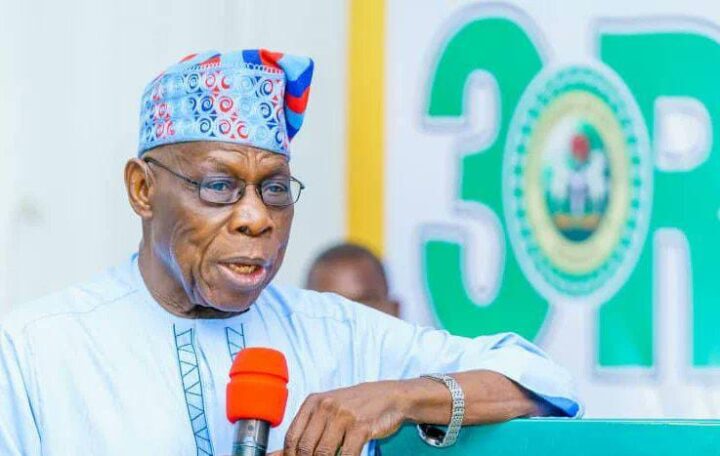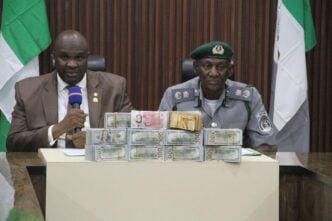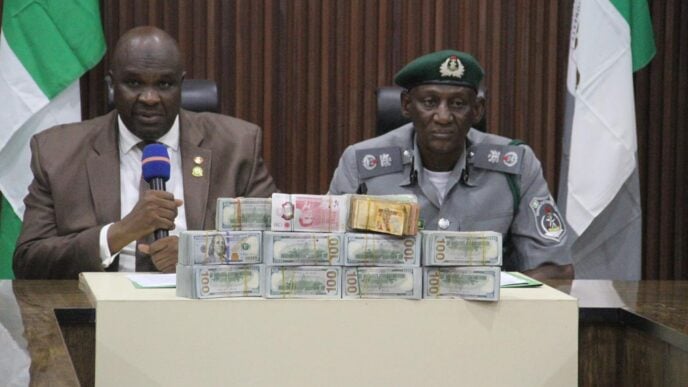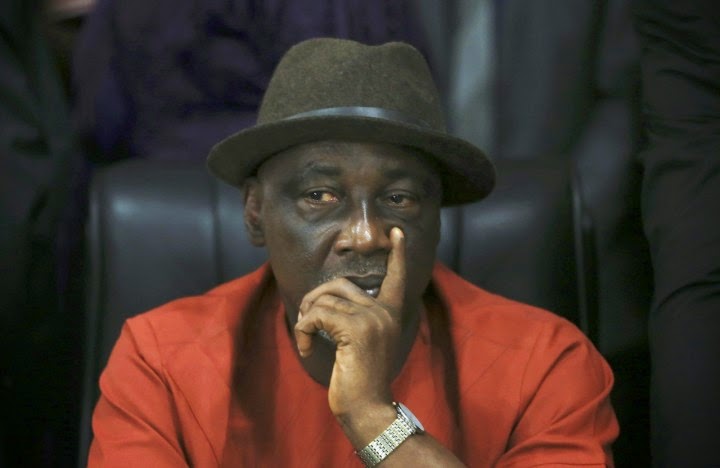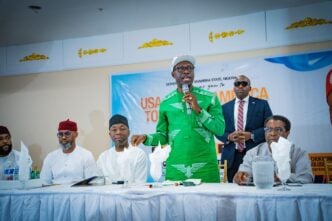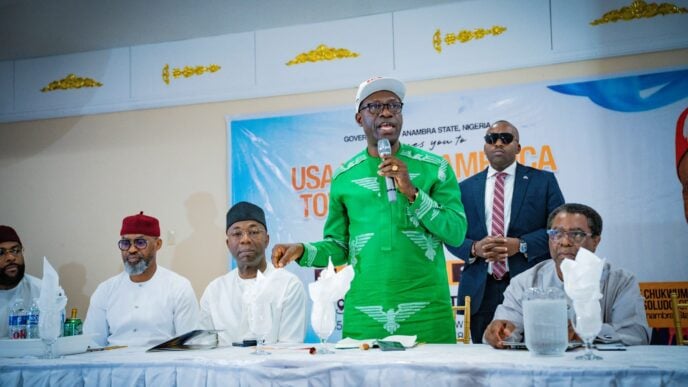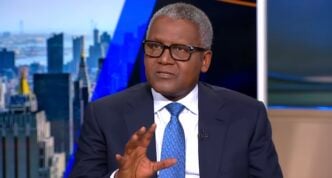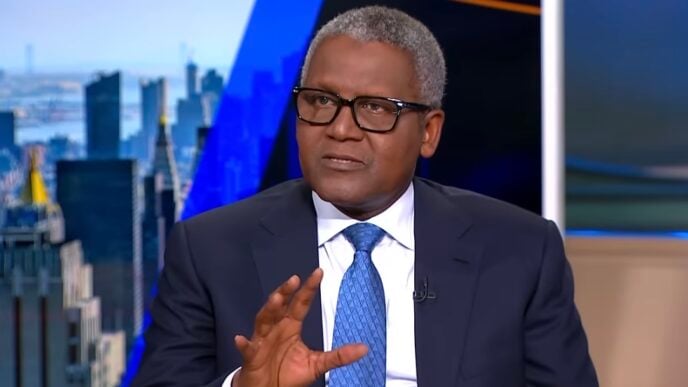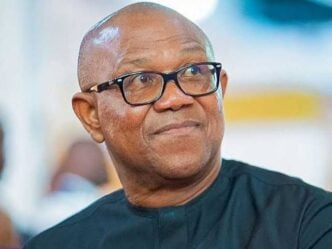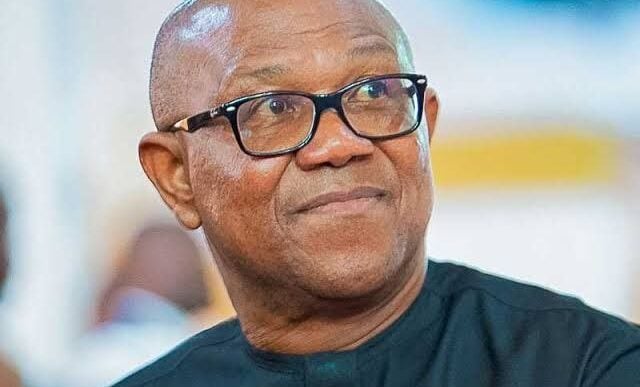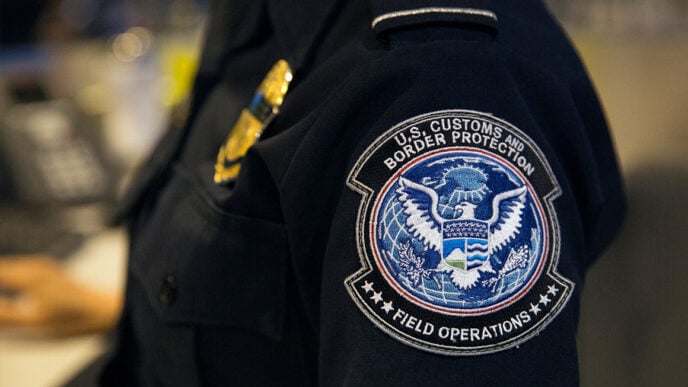Mohammed Bello Adoke, former attorney-general of the federation (AGF), says the actions of former President Olusegun Obasanjo fuelled the OPL 245 controversy.
In his new book, ‘OPL 245: The Inside Story of the $1.3bn Nigerian Oil Block’, published by The Conrad Press Ltd in the UK, Adoke accused the former president of failing the ultimate leadership test when it was time to take responsibility for his actions.
Oil Prospecting Lease No 245 was awarded to Malabu Oil & Gas Ltd in 1998 by the Sani Abacha regime but it was revoked by Obasanjo in 2001.
“Obasanjo woke up one morning and set OPL 245 on fire. There is no other way to describe what he did on 2 July 2001. Exactly five weeks after issuing OPL 245 to Malabu, he revoked the block without giving any reasons. He did not allege any impropriety. It was reminiscent of the days of military rule when impunity was the order of the day,” Adoke wrote.
Advertisement
“Unfortunately, Nigeria was now running a democracy and there was going to be a legal challenge to his decision. The domino effect would unfurl a chain of lawsuits, criminal trials and, ultimately, the defamation of my name.
“From what I was told a decade later by those who should know, Mr. Gabriel Volpi, an associate of Vice-President Atiku, and Otunba Oyewole Fasawe, Obasanjo’s pal, had offered to acquire a majority stake of 60% in Malabu and had negotiated with Chief Dan Etete, who acted as consultant to Malabu. I was told the negotiations broke down sometime in the first half of 2001, because Etete, who for all intents and purposes was the beneficial owner of Malabu despite calling himself a ‘consultant’, refused to cede majority shareholding to them. Shortly after, OPL 245 was unceremoniously revoked.”
Malabu went to court after the Obasanjo administration awarded the oil block to Shell in May 2002.
Advertisement
In August 2006, Babalakin & Co, lawyers to the federal government, advised Bayo Ojo, then attorney-general, that the case be settled out of court because of a supreme court judgment that had just been delivered in a similar case in which the government lost.
Ojo then wrote to Edmund Daukoru, then minister of state for petroleum resources, asking for an out-of-court settlement.
Daukoru wrote to Obasanjo who thereafter gave the go-ahead to return the oil block to Malabu in November 2006.
Malabu got the oil block back in 2010 and sold its entire interest to Shell and Eni for $1.1 billion in 2011.
Advertisement
Obasanjo would later deny approving the settlement agreement when Adoke was charged to court by the Muhammadu Buhari administration over allegations of corruption in the deal, although Nigeria lost all the cases and the former attorney-general was discharged and acquitted.
“Obasanjo failed the ultimate leadership test,” Adoke wrote in the book to be unveiled on Thursday in Abuja.
“After revoking OPL 245 in 2001 for less-than-altruistic reasons, he set the Nigerian oil and gas industry on the path of a crisis that would eventually hamper the country’s production. If he had not been untidy in the way he revoked the license, OPL 245 would by now have increased Nigeria’s production significantly. He created the OPL 245 mess, worsened the risk of investing in Nigeria, set the country on an avoidable course that further tarnished its image abroad and, upon all, refused to take responsibility for his actions. That is not leadership.”
‘OBASANJO TRIED TO RE-WRITE HISTORY’
Advertisement
Adoke said when Buhari came after him over the OPL 245 deal, he expected Obasanjo to counter the allegation that the settlement agreement of 2006 was illegal.
“In 2017, in the heat of the witch-hunt to which I was subjected by the Buhari Administration, Obasanjo tried to rewrite history while commenting on his 2006 Settlement Agreement. In an interview with Premium Times, he described the award of the oil block to Malabu as the ‘height of corruption’ which he could not have endorsed,” Adoke said.
Advertisement
Obasanjo had told Premium Times: “Adoke and others should not drag me into a matter I know nothing about. If they have been asked to answer questions over decisions they took while in office, they should do that honourably. They should not bring Obasanjo into an Etete deal. I was not part of any such deal. If I hold that view, I could not have approved a deal with Dan Etete. What Etete did is the height of corruption. He appropriated the asset to himself illegally, illegitimately and immorally. I can’t remember giving approval that the block be given back to Etete. We gave it back to Malabu? On what ground? Do you have any such evidence? Ask Bayo Ojo and Edmund Daukoru what really happened because the stand I took at the time was unassailable. If Daukoru has evidence that I approved that the block be given back to Malabu or Etete, let him produce it. If it is proven that I indeed approved the deal, I will be willing to apologise to Nigerians.”
Adoke said the Buhari administration “seized on this dishonest denial” to strengthen its case “and sharpen its knives against me”.
Advertisement
“But Obasanjo was blatantly lying. The letter showing his approval, in his handwriting, surfaced on the pages of newspapers a few days after the publication of his ill-advised interview. Evidence shows that Obasanjo approved the Settlement Agreement every step of the way. He was fully aware of Etete’s involvement,” Adoke narrated.
“Rather than keep his word by holding up his hand and apologizing to Nigerians when the proof went public, Obasanjo simply went quiet in his usual self-righteous manner. If Obasanjo had come out to say ‘Yes, I approved the return of OPL 245 to Malabu’, it would have made a world of difference. That is leadership. He failed himself.
Advertisement
“The irony of it all is that without Obasanjo’s Settlement Agreement, the Jonathan Administration would not have been obliged to return the oil block to Malabu. It was disingenuous of Obasanjo to have tried to distort historical facts. There is still one question Obasanjo needs to answer: who gave Shell the authority to de-risk OPL 245 in 2002? Shell paid US$1m out of the US$210m Signature Bonus and deposited the balance in an Escrow Account. That was a clear indication that Shell expected a legal hurdle. Otherwise, it would have paid the entire sum at once, unencumbered.
“Obasanjo gave Shell the go-ahead to de-risk the investment. This was the basis on which Shell had legal claims to OPL 245 and Nigeria had to face the complications that followed. However, like the biblical Pontius Pilate, Obasanjo hypocritically distanced himself from the problem and proved to be incapable of standing by what is right.”
